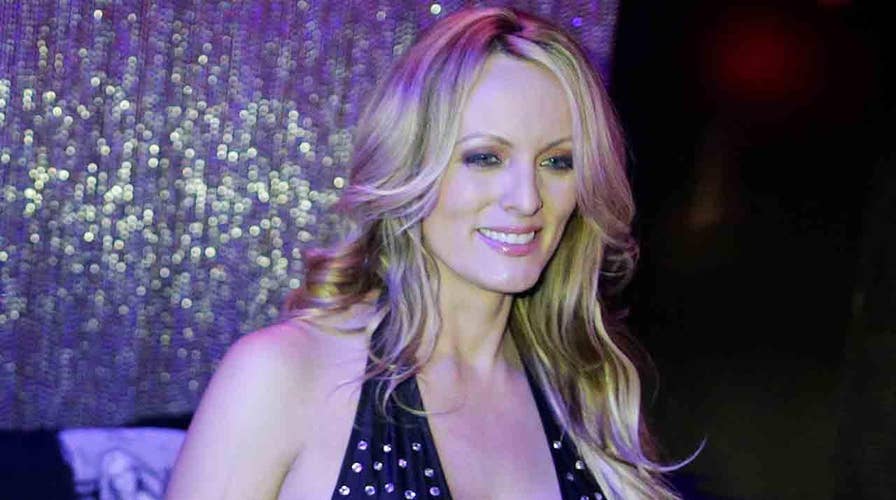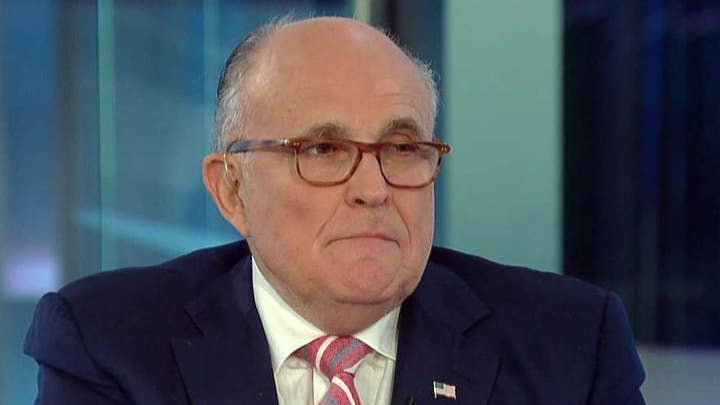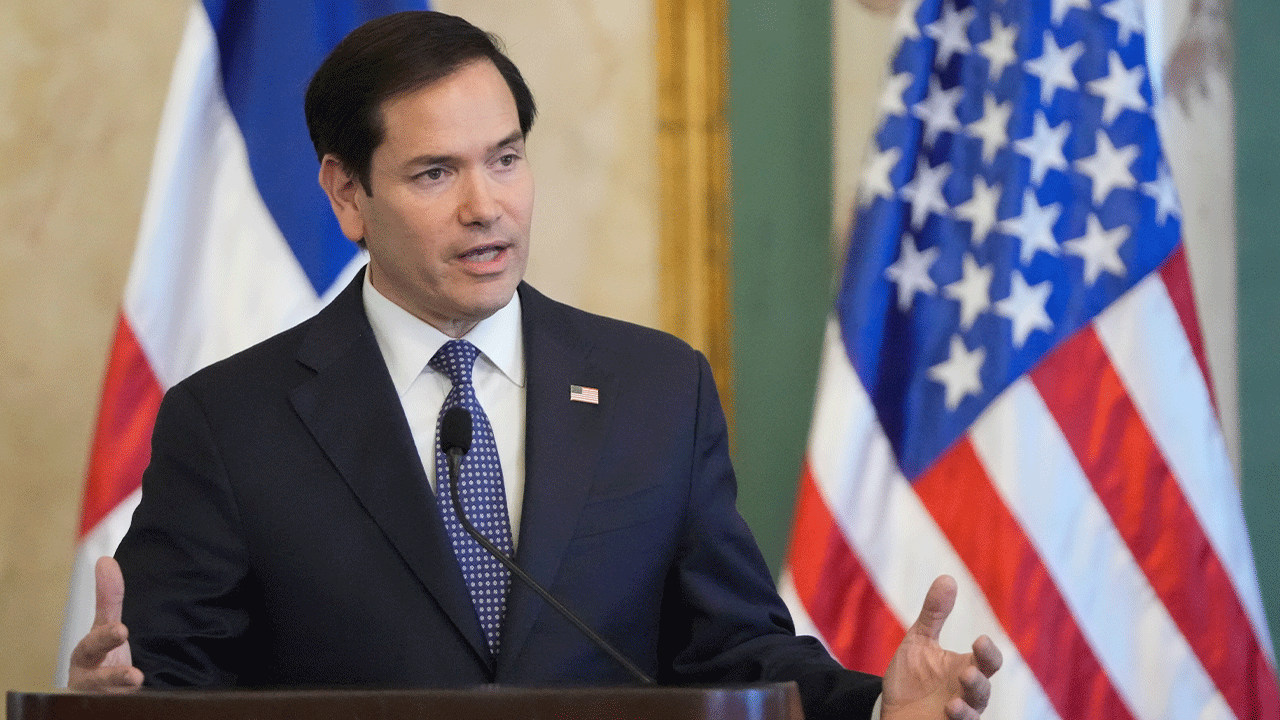Giuliani: Trump repaid Cohen for Stormy Daniels payment
Rudy Giuliani says President Trump reimbursed attorney Michael Cohen for the $130,000 paid to the adult film star and that no campaign funds were used.
President Trump, in his first statements since lawyer Rudy Giuliani revealed overnight that the president reimbursed attorney Michael Cohen for a hush-money payment to porn star Stormy Daniels, said the money was meant to stop “false” allegations and stressed campaign funds played no role.
The president put out a three-part tweet about the $130,000 Cohen paid to Daniels, whose real name is Stephanie Clifford, to stay quiet in the weeks before the 2016 election about accusations of an affair.
“Mr. Cohen, an attorney, received a monthly retainer, not from the campaign and having nothing to do with the campaign, from which he entered into, through reimbursement, a private contract between two parties, known as a non-disclosure agreement, or NDA,” Trump tweeted early Thursday.
“These agreements are very common among celebrities and people of wealth. In this case it is in full force and effect and will be used in Arbitration for damages against Ms. Clifford (Daniels). The agreement was used to stop the false and extortionist accusations made by her about an affair,” Trump added.
Trump continued: “…despite already having signed a detailed letter admitting that there was no affair. Prior to its violation by Ms. Clifford and her attorney, this was a private agreement. Money from the campaign, or campaign contributions, played no roll[sic] in this transaction.”
The president was referring to a letter written and signed by Daniels in January, stating “with complete clarity” that allegations of an affair with Trump were “absolutely false.” Daniels also wrote, at the time, that rumors that she received “hush money” from Trump were “completely false.”
Trump, however, also said last month that he didn’t know about the $130,000 payment.
But Giuliani revealed Wednesday night on Fox News' "Hannity" that Trump indeed made the reimbursement.
Giuliani, though, clarified Thursday on “Fox & Friends” that Trump “didn’t know the details of this until we knew the details of this” a couple weeks ago. He has said Trump thought it was to cover unspecified "expenses."
Giuliani stressed that this was a personal payment and disputed any suggestion that it was an unreported campaign contribution.
“[Cohen] was trying to help the family. … I think he was just being a good lawyer,” he said.
“That money was not campaign money,” Giuliani also said on "Hannity." “It’s not campaign money. No campaign finance violation.”
Giuliani, who recently joined Trump's legal team, added that the money was “funneled” through a “law firm and the president repaid it.”
Whether that argument holds up remains to be seen. A candidate is allowed to contribute an unlimited amount to his or her campaign. However, contributions are supposed to be officially reported.
If the payments were wholly personal, said Richard L. Hasen, an expert in election law at the University of California, Irvine, there would be no campaign finance violations.
But Giuliani's argument that the payment was unrelated to the campaign could well be challenged. If it's considered a campaign-related expense, the onus may have been on the president or his campaign to report it as a loan.
"The greatest significance is that it implicates the president, directly," Hasen told the Associated Press.
Daniels’ attorney, Michael Avenatti, said on MSNBC’s “Morning Joe” Thursday morning that if it’s “true” that Trump reimbursed Cohen, it’s a “crime” with “serious consequences.”
Cohen previously has said the money he paid to Daniels came out of his own pocket. Both Trump's and Giuliani's statements now seem to contradict Cohen's account.
Cohen is currently under criminal investigation as part of a grand jury probe looking into his personal business dealings.
Fox News' Samuel Chamberlain and Paulina Dedaj and The Associated Press contributed to this report.


























